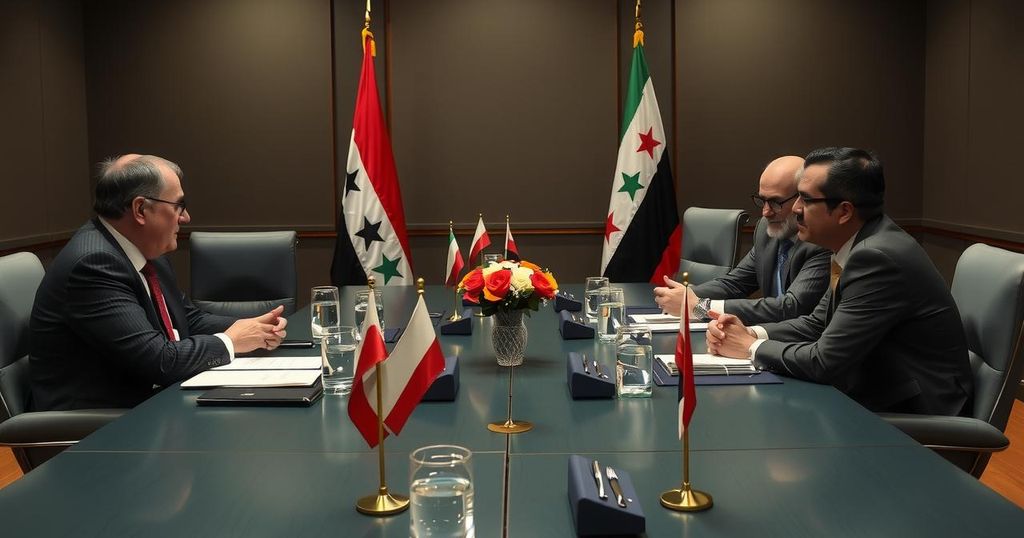During a meeting in Jordan, officials from the US, Turkey, and several Arab nations agreed to support a peaceful transition in Syria. The talks highlighted the necessity for an inclusive government while addressing concerns about potential chaos and terrorist influences. Divisions and past influences must be recognized to pursue stability and development in Syria’s future governance.
Officials from the United States, Turkey, and various Arab nations have come together to endorse a peaceful transition in Syria following discussions held in Jordan. During a press briefing, Ayman Safadi, the Foreign Minister of Jordan, emphasized that regional powers are determined to prevent Syria from descending into chaos. US Secretary of State Antony Blinken confirmed direct communication with the rebel group Hayat Tahrir al-Sham (HTS), which has played a pivotal role in efforts against President Bashar al-Assad’s regime.
A joint statement issued during the meeting underscored the need for the establishment of an inclusive Syrian government that respects minority rights and refrains from providing a refuge for terrorist organizations. Iraqi Foreign Minister Fuad Hussein expressed concerns regarding Syria’s stability amidst regional anxieties, notably mentioning the risk of replicating Libya’s aftermath post-Gaddafi.
Furthermore, Turkish Foreign Minister Hakan Fidan cited the importance of preserving and reforming existing Syrian institutions, highlighting that measures must be taken to prevent any terrorist exploitation during the transition. Although HTS has shown a commitment to forming an inclusive government, skepticism remains due to its violent extremist history.
Secretary Blinken reiterated that the United States has maintained contacts with HTS, particularly focusing on the welfare of missing American journalist Austin Tice, despite the absence of any representatives from Syria at the meeting. The absence of Iran and Russia, nations that previously supported Assad, was also notable during the discussions. As various external influences continue to shape Syria’s future, fostering cohesion among emerging political factions becomes crucial for realizing the aspirations of the Syrian populace for governance and freedom.
The ongoing conflict in Syria, which began in 2011, has resulted in a protracted civil war marked by humanitarian crises and significant geopolitical tensions involving various global powers. Following recent events indicating potential transitions within the power structure, certain regional powers, including the United States, Turkey, and Arab states, have recognized the need for a collaborative effort towards a peaceful governance framework. The inclusion of diverse factions in a unified government is essential to maintain stability and prevent further unrest.
In summary, the discussions between the United States, Turkey, and Arab officials reflect a shared commitment to facilitating a peaceful transition in Syria, prioritizing the establishment of an inclusive government. Concerns over potential chaos and the need to avoid external influences reminiscent of previous conflicts remain prevalent. As the situation develops, the focus on cooperation and reform within Syrian institutions is critical to achieving a unified and stable governance structure that can address the needs of all Syrians.
Original Source: www.bbc.co.uk





